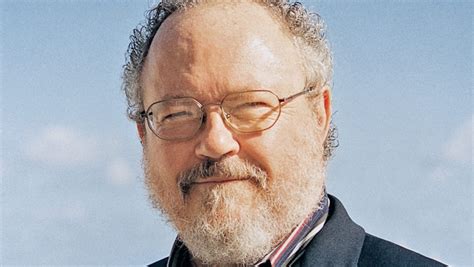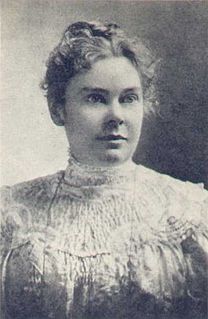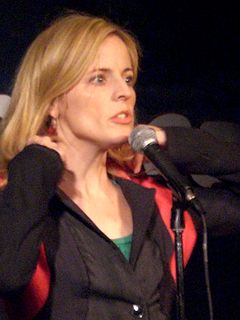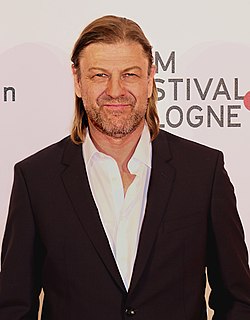A Quote by Patricia Briggs
If she kept wondering about how much of her life Bran engineered, she’d end up on a funny farm knitting caps for ducks.
Related Quotes
Cows that are fed organic food are still kept as slaves on farms, regardless of whether it is a large corporate factory farm or a small family farm. Besides, every dairy cow, no matter what she has been fed, has her babies stolen from her shortly after birth and she will inevitably end up in the slaughterhouse.
But what I kept wondering about is this: that first second when she felt her skirt burning, what did she think? Before she knew it was candles, did she think she'd done it herself? With the amazing turns of her hips, and the warmth of the music inside her, did she believe, for even one glorious second, that her passion had arrived?
You must learn her. You must know the reason why she is silent. You must trace her weakest spots. You must write to her. You must remind her that you are there. You must know how long it takes for her to give up. You must be there to hold her when she is about to. You must love her because many have tried and failed. And she wants to know that she is worthy to be loved, that she is worthy to be kept. And, this is how you keep her.
I asked my schoolmate Mary to write a letter to me. She was funny and full of life. She liked to run around her empty house without any clothes on, even once she was too old for that. Nothing embarrassed her. I admired that so much, because everything embarrassed me, and that hurt me. She loved to jump on her bed. She jumped on her bed for so many years that one afternoon, while I watched her jump, the seams burst. Feathers filled the small room. Our laughter kept the feathers in the air. I thought about birds. Could they fly if there wasn’t someone, somewhere, laughing?
Lyra learns to her great cost that fantasy isn’t enough. She has been lying all her life, telling stories to people, making up fantasies, and suddenly she comes to a point where that’s not enough. All she can do is tell the truth. She tells the truth about her childhood, about the experiences she had in Oxford, and that is what saves her. True experience, not fantasy - reality, not lies - is what saves us in the end.
For she was a child, throwing bread to the ducks, between her parents who stood by the lake, holding her life in her arms which, as she neared them, grew larger and larger in her arms, until it became a whole life, a complete life, which she put down by them and said, "This is what I have made of it! This!" And what had she made of it? What, indeed?
She was the first person on either side of her family to go to college, and she held herself to insanely high standards. She worried a lot about whether she was good enough. It was surprising to see how relieved she seemed whenever I told her how amazing she was. I wanted her to feel strong and free. She was beautiful when she was free.
In the short summer night she learned so much. She would have thought a woman would have died of shame... She felt, now, she had come to the real bedrock of her nature, and was essentially shameless. She was her sensual self, naked an unashamed. She felt a triumph, almost a vainglory. So! That was how it was! That was life! That was how onself really was! There was nothing left to disguise or be ashamed of. She shared her ultimate nakedness with a man, another being.
The idea is that Jodie Foster is with her child and she's going back to New York from Germany with her husband's body. She loses her child on a plane, and you think, 'How can that happen?' There's no record of her having brought a child onto the plane, and the captain is left wondering about whether she's telling the truth. You never really know if she's telling the truth or not.
What? she said once to herself, and then once aloud, What? She felt a total displacement, like a spinning globe brought to a sudden halt by the light touch of a finger. How did she end up here, like this? How could there have been so much - so many moments, so many people and things, so many razors and pillows, timepieces and subtle coffins - without her being aware? How did her life live itself without her?
She yearned to see her mother again, and Robb and Bran and Rickon… but it was Jon Snow she thought of most. She wished somehow they could come to the Wall before Winterfell, so Jon might muss up her hair and call her “little sister.” She’d tell him, “I missed you,” and he’d say it too at the very same moment, the way they always used to say things together. She would have liked that. She would have liked that better than anything.





































